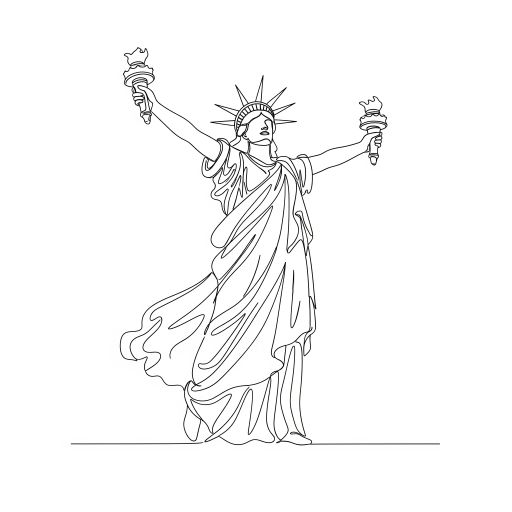Liberty Matters
What Loving Liberty Means

David Boaz was very much an optimist, particularly in his speeches and writings. Given his decades of experience, he knew that working in public policy to limit the power of government is, most often, a losing proposition. It seems that almost every new law is at least a small policy loss, and among those many small defeats are peppered very large ones. Yet, as we’ve discussed in these essays and reflections, David would invariably talk about the gains for freedom, explaining how much better millions of people were than just a generation ago, let alone centuries or longer, even if lamenting some new law or regulation that would impinge on liberty in some way.
It would be wrong, however, to say that David viewed the world with rose-colored glasses. Indeed, his last public speech—that each of my co-authors cited in their initial essays—serves as much of a challenge and warning as it does a reflection on the triumphs of liberty. It is fitting, of course, because David would consistently challenge his audience, his readers, and his colleagues to think harder about liberty.
Although David deftly fused celebrating liberty’s achievements with the seriousness needed to expand and protect it, these perspectives largely remain in tension in the public square.
There are those who spend much of their energy celebrating the triumphs of capitalism and its role in reducing poverty, hunger, and disease around the world. Bestselling books and high-paying lecture circuits feature feel-good reminders of how good we have it. And there is certainly a role for this recognition, because simple examples of real progress and success make freeing policies easier to promote and defend.
Too often, though, these examples help downplay criticisms of the status quo today. Advocates for those who have not yet fully reaped material benefits or who face other challenges can be greeted with a smiling complacency and a dismissal of their legitimate grievances.
I’ve read, listened to, and even edited libertarians who complain that certain Black writers are too negative about the freedoms America provides, as if libertarians—of all people—should be the one to tell others when they’ve enjoyed enough freedom.
I recall this not to call anyone out. Indeed, the notable dearth of Black voices and faces among American libertarians bothered David and, over a period of years, we discussed ways to remedy that.
But when there is a tension between speaking to what is great and complaining about what remains to be done, I will invariably focus my efforts on the latter, because the country has a long way to go. As James Baldwin said, “I love America more than any other country in the world and, exactly for this reason, I insist on the right to criticize her perpetually.”
I’ve written before about how my grandfather James, born in the late 1800s in Mississippi, owned a revolver to protect his family from the Indiana Klan, who controlled much of the state in the early 20th century. My father grew up in the Great Depression and was buried with military honors for serving in the years immediately following World War II, part of which he spent in Jim Crow New Orleans. While my father lived into his early 80s, the U.S. government had only affirmed its recognition and protection of his right to vote under the 15th Amendment when he was 37 years old. In my own life, growing up in the 1980s, my first elementary school was a magnet program created, in part, to continue desegregating schools in my northern Indiana hometown, almost 30 years after Brown v. Board of Education.
To me and many Americans like me, the expansion and protection of freedom has a more visceral meaning than the “liberty” that is too often a political prop for conservative policy preferences. Put simply, I do not take my liberty for granted because my family hasn’t had it very long.
In honor of David, and his love of the Declaration of Independence, I challenge you—dear reader—to re-approach the most famous words in American politics, as we confront an egregiously illiberal presidential administration:
We hold these truths to be self-evident, that all men are created equal, that they are endowed by their Creator with certain unalienable Rights, that among these are Life, Liberty and the pursuit of Happiness.
American liberals and libertarians tend to think of the phrase “all men are created equal,” either as a given, as the term “self-evident” would suggest, or as a demand for colorblindness. Either are defensible positions, but let us also consider it a demand for a defense of universal dignity, when the president picks and chooses who gets sanctuary in our country, or perhaps more pointedly, who does not. Let liberals recognize that using governmental decrees to attack political rivals is an attack on equality before the law, and that is unacceptable. When the government moves to make some people less worthy of liberty than others, to deny them the due process that is a bulwark of our liberties, those actions definitionally undermine foundational principles of our country and must be opposed.
I do not possess David’s optimism, but I hope these words do his memory justice. It was an honor to reflect on his work and his life with such a distinguished group of writers. Many thanks to the Liberty Fund for hosting these essays.
Copyright and Fair Use Statement
“Liberty Matters” is the copyright of Liberty Fund, Inc. This material is put on line to further the educational goals of Liberty Fund, Inc. These essays and responses may be quoted and otherwise used under “fair use” provisions for educational and academic purposes. To reprint these essays in course booklets requires the prior permission of Liberty Fund, Inc. Please contact oll@libertyfund.org if you have any questions.